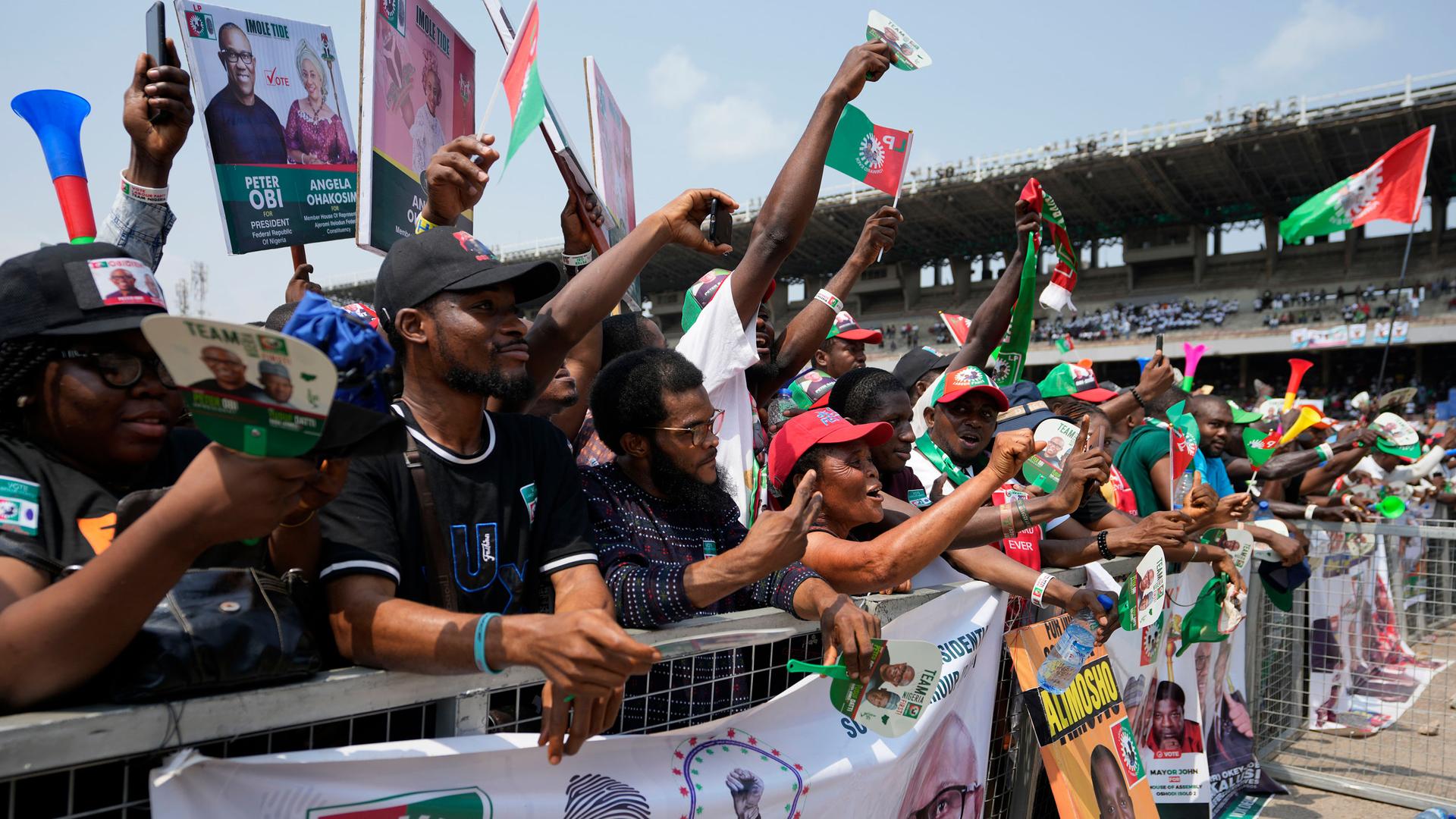Like many large cities in the world, Lagos, Nigeria, is a place of great contradictions.
The growing wealth of the monied class is evident in the luxury estates and trendy restaurants serving pricey cocktails and canapes.
But behind the glitz and glamor, an estimated 40% of the population still lives under the poverty line. For most Nigerians, the economy has only gotten worse under outgoing President Muhammadu Buhari.
“It’s affecting all the poor masses, the commoners,” 28-year-old Moses Anjola said.
Despite earning a diploma in computer science in 2017, he said he hasn’t been able to find a job. The lack of work has made him feel stunted and behind in life.
“By now, I’m supposed to have kids. But because of the situation in the country, I couldn’t, and I’m growing. I want a better Nigeria,” he said.
As millions of Nigerians prepare for the presidential election on Feb. 25, the stinging economy and unemployment in the formal sector have the nation’s youth particularly tuned in and ready to cast their vote.
It has also brought concerns that the votes of the country’s most vulnerable could be up for sale.
But not Anjola’s.
“Even for 1 million [naira] I won’t,” he said, shaking his head vigorously. “We’re saying enough to money politics as young people.”
Related: Millions of Nigerians prepare to vote amid chaotic cash shortage
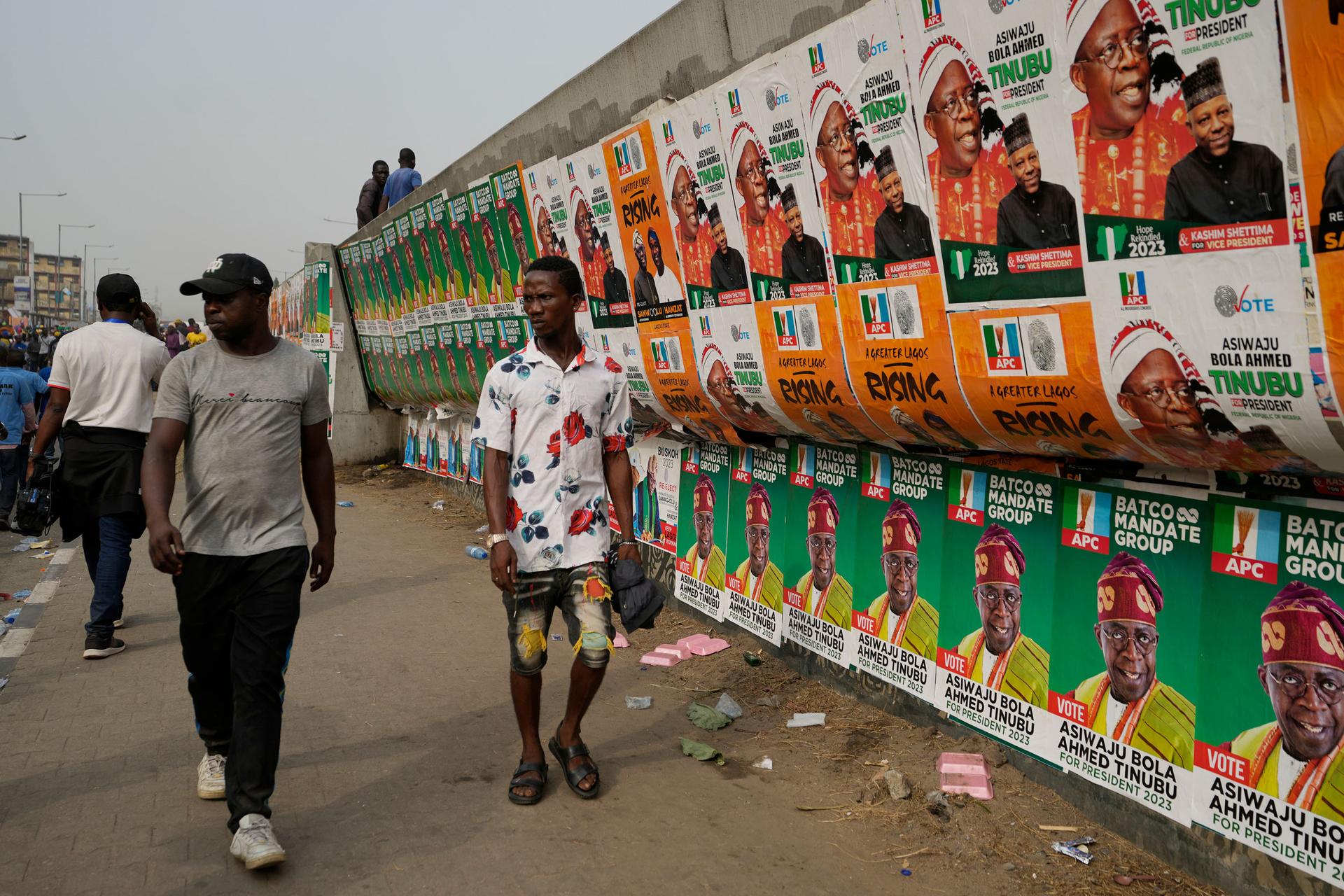
This call for change of the status quo in Nigerian politics has echoed across Nigeria’s youth, who seem particularly geared up for this election.
“A lot of youth are more involved,” said 24-year-old Ololade Oriola at Spaces for Change, an organization that works on civic engagement and education.
“This is a youth election,” she said adamantly — pointing out the high voter registration among youth like herself.
Oriola attributes this to the #EndSARS protests against police brutality in 2020 that were largely organized by youth who became politically active on social media.
“[#EndSARS] was really an awakening moment for all of us. And we were able to learn so much from that period. I mean, it was the first time that you would see the youth come out en masse like that and you see them take charge and really self-lead themselves.”
“It was really an awakening moment for all of us. And we were able to learn so much from that period. I mean, it was the first time that you would see the youth come out en masse like that and you see them take charge and really self-lead themselves.”
The #EndSARS protests, and the subsequent brutal crackdown by Nigeria’s security forces, received global attention — including by then-presidential candidate Joe Biden.
“They were shooting, and they never stopped shooting. Some are shooting in the head. Some are shooting straight bullets,” said comedian Matthew Ifeanyi Agbeze, who was shot during the Lekki Toll Gate Massacre.
“Is this a war zone? Or are these peaceful protesters?” he asked.
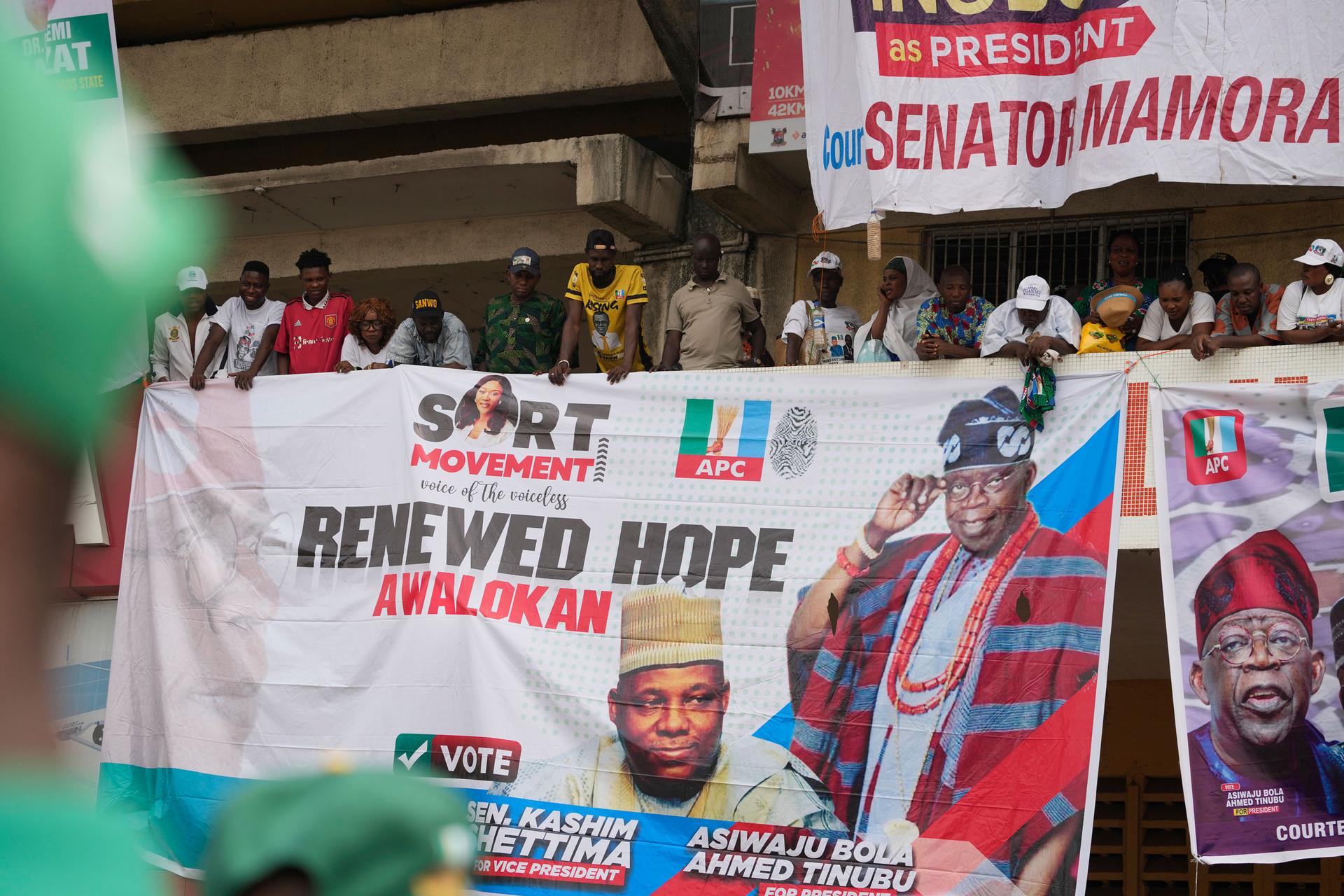
Two years later, Ifeanyi said he is still in pain from his injuries, but is unable to afford the recommended surgery.
He said he and other victims of the Lekki Toll Gate massacre haven’t received much formal help, if any.
“I was shot, nothing from anybody. Nothing from government,” he said.
“Nigerian election is here now. Let everybody now wake up. We need to stand as we stood,” he said, calling on Nigerians to vote for the right leaders.
For him, that leader is presidential candidate Peter Obi of the Labor Party.
The 61-year-old has emerged as a rare third-party candidate with a real chance of disrupting the typical two-horse race between Nigeria’s ruling All Progressive Congress (APC) and People’s Democratic Party (PDP).
His relatively clean track record as state governor of Anambra has made him an attractive option for many youth across the religious, ethnic, and regional lines that typically define voting patterns in Nigerian politics.
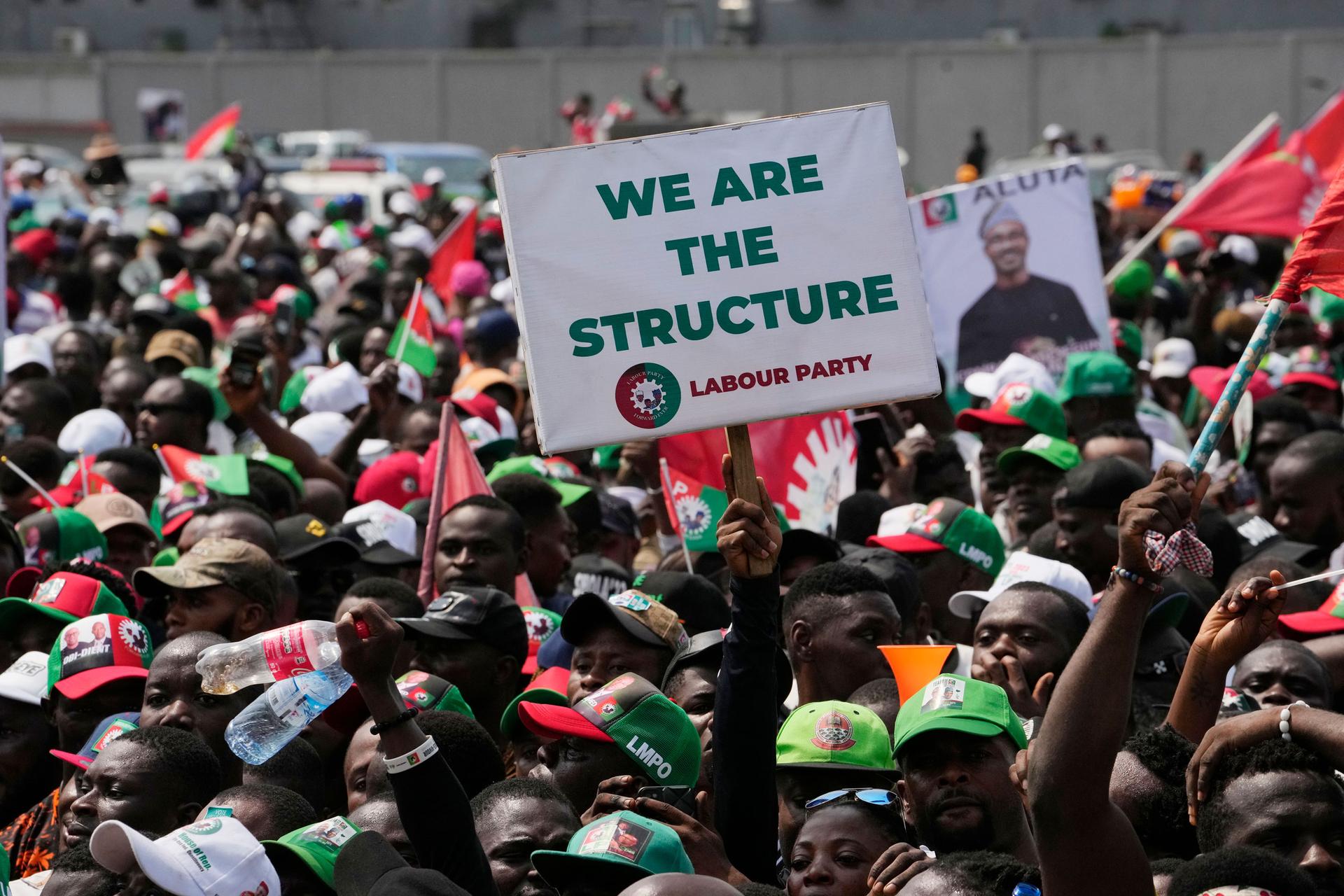
For Anjola, the computer science graduate, Obi offers a chance for a better Nigeria.
“This is the only hope as a Nigerian. Obi is my only hope,” he said.
But Obi faces stiff challenges, especially in Lagos, which is a stronghold of presidential candidate and former Lagos governor Bola Tinubu of the APC Party. He is also expected to struggle to get votes in the northern parts of the country.
The unpredictable nature of this election, bolstered by new election technologies and innovations, has boosted hopes that this could be one of Nigeria’s most competitive — and transparent — elections.
“I trust the technology,” said Raimi Ahmed Olamide, Agbeze’s friend and fellow comedian.
He’s referring to the new electronic devices to authenticate voters, and a public viewing portal for election results that have been implemented by the Independent National Electoral Commission (INEC).
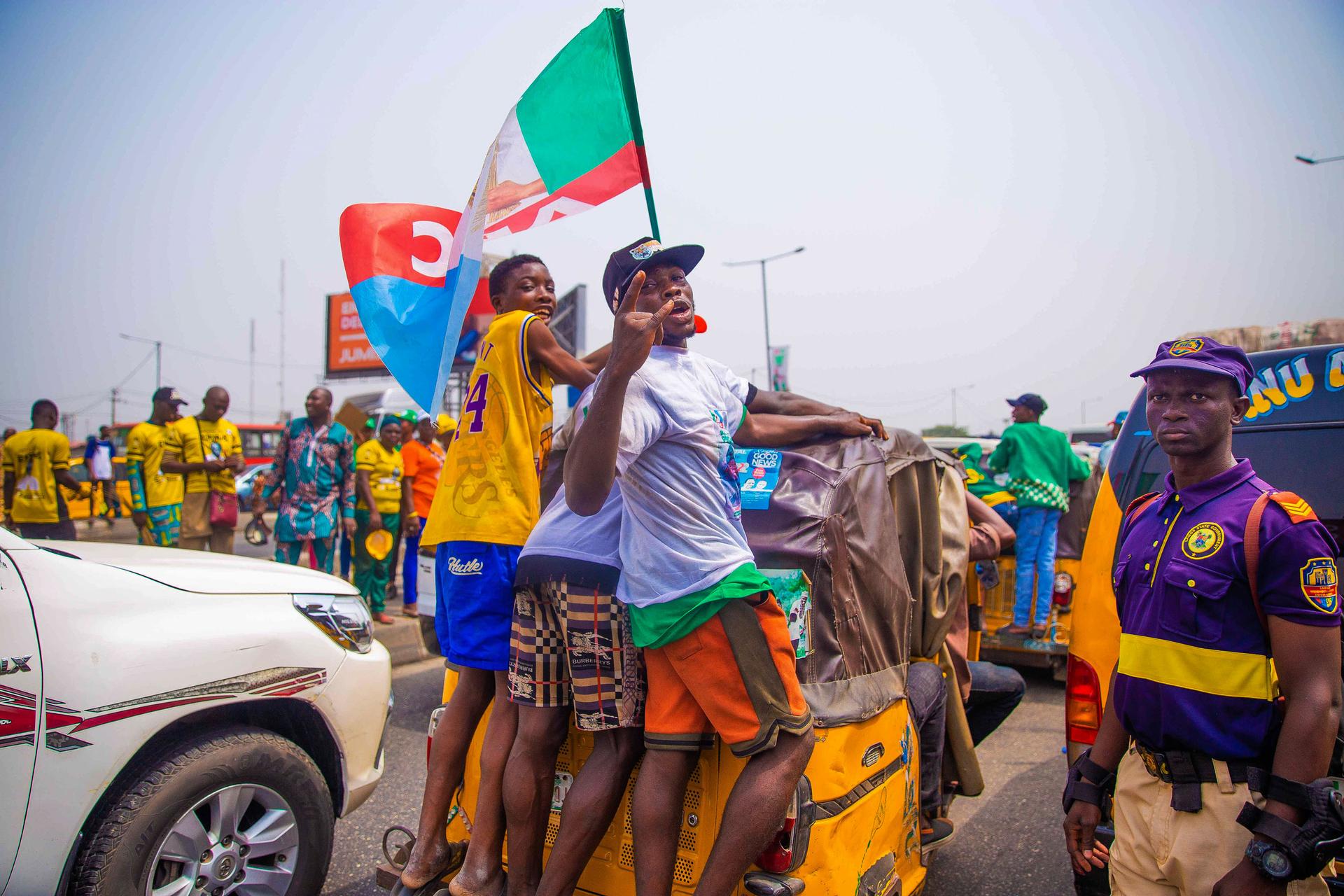
Still, Olamide plans to monitor the voting process at a local polling station, to “secure the vote” from rigging.
“I will be there watching. Even with my phone. I will video,” he said. “Anything I see, I’m sending it to the internet.”
He said the #EndSARS movement taught him about the power of social media, and called on young people to wield it once again.
“It’s we the youth that control the internet.”
Our coverage reaches millions each week, but only a small fraction of listeners contribute to sustain our program. We still need 224 more people to donate $100 or $10/monthly to unlock our $67,000 match. Will you help us get there today?
